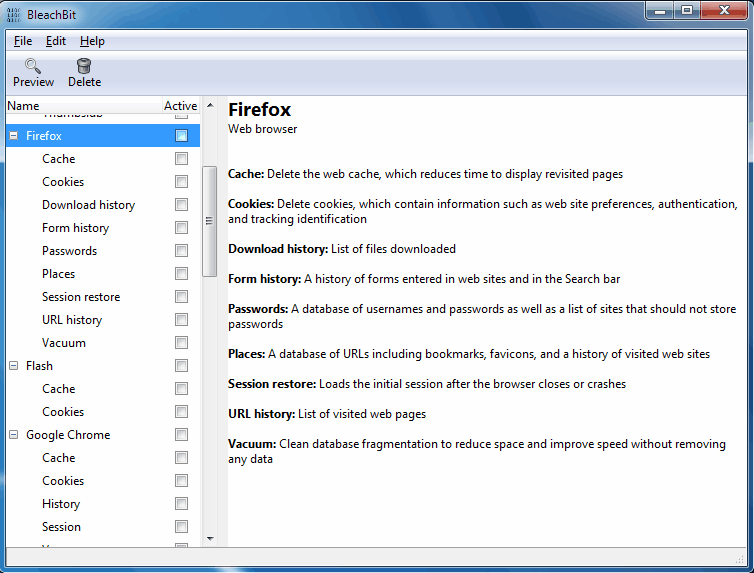CCleaner is the usual recommendation when it comes to deleting those pesky temporary files that the operating system and programs collect all the time.
The software is highly customizable and supports a wide variety of programs and locations that can be deleted with it.
Open Source application BleachBit is a CCleaner alternative for Windows and Linux. The software can be used to delete temporary files and other information that are recorded by supported operating systems and specific applications.
Running a software like BleachBit regularly protects your privacy by deleting information about opened programs, files and websites. It also increases the available hard drive space by deleting temporary files.
BleachBit is available as a portable version and installer. Both versions display the same interface on startup. The left side lists the programs and locations that can be cleaned, the right information about each entry or progress of the cleaning.

privacy software bleachbit
The program provides immediate information about items in each category which is helpful when it comes to determining the temporary files to be deleted. CCleaner for instance does not provide information about the items that it collects information about.
The available programs and locations are comparable to CCleaner with the exception of missing custom locations. BleachBit users cannot add additional locations to the cleanup process.
Update: The most recent version of Bleachbbit supports custom locations as well. You find the option to add custom locations in the preferences.
BleachBit users can clear system files and locations like the Recycle Bin, logs or recent document lists as well as temporary data from programs like Skype, Thunderbird, Mozilla, Opera or Microsoft Office. Lastly there is an option to deep scan the computer system for temporary and backup files.
The preview button can be used to run a scan on the system without actually deleting files immediately. This is helpful to determine the files that are deleted and the disk space that gets recovered by doing so.
Temporary files can be overwritten automatically to prevent file recovery. Another option to prevent this is to wipe free disk space of a drive or folder. The program preferences offer options to change the files or folders and whitelist programs that should not be deleted under any circumstances.
BleachBit makes many things right. It would be a worthy CCleaner contender if the developer’s would add an option to delete files in custom locations.
Windows and Linux users can download the privacy and maintenance software from the developer’s website over at Sourceforge.